2016 Toyota Prius V Service, Tires & Repairs
Get Started
Complete Auto Care for Your 2016 Toyota Prius V
-
TIRES FOR YOUR 2016 Toyota Prius V View Tire Info GET TIRE PRICING
-
REPAIR FOR YOUR 2016 Toyota Prius V View Repair Info SCHEDULE REPAIR
-
MAINTENANCE FOR YOUR 2016 Toyota Prius V View Maintenance Info SCHEDULE MAINTENANCE
-
OFFERS FOR YOUR 2016 Toyota Prius V Limited Time Tire Offers VIEW ALL COUPONS
2016 Toyota Prius V Tires
Recommended Tires | Tire Information
2016 Toyota Prius V Tires Sizes, Speed Ratings, and Inflation
Not sure about your 2016 Toyota Prius V tire size? Use the following chart to find information on tire size, speed rating, and inflation.
| Trim Level | Speed Rating | Inflation in PSI F/R | Tire Size |
|---|---|---|---|
| 2016 Toyota Prius V Five* | W | 33 PSI/32 PSI | P215/50R17 |
| 2016 Toyota Prius V Five* | W | 33 PSI/32 PSI | P215/50R17 |
| 2016 Toyota Prius V Five* | W | 33 PSI/32 PSI | P215/50R17 |
| 2016 Toyota Prius V Five* | W | 33 PSI/32 PSI | P215/50R17 |
| 2016 Toyota Prius V Five* | W | 33 PSI/32 PSI | P215/50R17 |
| 2016 Toyota Prius V Five* | W | 33 PSI/32 PSI | P215/50R17 |
| 2016 Toyota Prius V Five* | W | 33 PSI/32 PSI | P215/50R17 |
| 2016 Toyota Prius V Five* | W | 33 PSI/32 PSI | P215/50R17 |
| 2016 Toyota Prius V Five* | W | 33 PSI/32 PSI | P215/50R17 |
| 2016 Toyota Prius V Five* | W | 33 PSI/32 PSI | P215/50R17 |
| 2016 Toyota Prius V Four* | V | 35 PSI/33 PSI | P205/60R16 |
| 2016 Toyota Prius V Four* | V | 35 PSI/33 PSI | P205/60R16 |
| 2016 Toyota Prius V Four* | V | 35 PSI/33 PSI | P205/60R16 |
| 2016 Toyota Prius V Four* | V | 35 PSI/33 PSI | P205/60R16 |
| 2016 Toyota Prius V Four* | V | 35 PSI/33 PSI | P205/60R16 |
| 2016 Toyota Prius V Four* | V | 35 PSI/33 PSI | P205/60R16 |
| 2016 Toyota Prius V Four* | V | 35 PSI/33 PSI | P205/60R16 |
| 2016 Toyota Prius V Four* | V | 35 PSI/33 PSI | P205/60R16 |
| 2016 Toyota Prius V Four* | V | 35 PSI/33 PSI | P205/60R16 |
| 2016 Toyota Prius V Four* | V | 35 PSI/33 PSI | P205/60R16 |
| 2016 Toyota Prius V Two* | V | 35 PSI/33 PSI | P205/60R16 |
| 2016 Toyota Prius V Two* | V | 35 PSI/33 PSI | P205/60R16 |
| 2016 Toyota Prius V Two* | V | 35 PSI/33 PSI | P205/60R16 |
| 2016 Toyota Prius V Two* | V | 35 PSI/33 PSI | P205/60R16 |
| 2016 Toyota Prius V Two* | V | 35 PSI/33 PSI | P205/60R16 |
| 2016 Toyota Prius V Two* | V | 35 PSI/33 PSI | P205/60R16 |
| 2016 Toyota Prius V Two* | V | 35 PSI/33 PSI | P205/60R16 |
| 2016 Toyota Prius V Two* | V | 35 PSI/33 PSI | P205/60R16 |
| 2016 Toyota Prius V Two* | V | 35 PSI/33 PSI | P205/60R16 |
| 2016 Toyota Prius V Two* | V | 35 PSI/33 PSI | P205/60R16 |
| 2016 Toyota Prius V Three* | V | 35 PSI/33 PSI | P205/60R16 |
| 2016 Toyota Prius V Three* | V | 35 PSI/33 PSI | P205/60R16 |
| 2016 Toyota Prius V Three* | V | 35 PSI/33 PSI | P205/60R16 |
| 2016 Toyota Prius V Three* | V | 35 PSI/33 PSI | P205/60R16 |
| 2016 Toyota Prius V Three* | V | 35 PSI/33 PSI | P205/60R16 |
| 2016 Toyota Prius V Three* | V | 35 PSI/33 PSI | P205/60R16 |
| 2016 Toyota Prius V Three* | V | 35 PSI/33 PSI | P205/60R16 |
| 2016 Toyota Prius V Three* | V | 35 PSI/33 PSI | P205/60R16 |
| 2016 Toyota Prius V Three* | V | 35 PSI/33 PSI | P205/60R16 |
| 2016 Toyota Prius V Three* | V | 35 PSI/33 PSI | P205/60R16 |
|
2016 Toyota Prius V Five* Speed Rating: W Inflation F/R: 33 PSI/32 PSI |
|
2016 Toyota Prius V Five* Speed Rating: W Inflation F/R: 33 PSI/32 PSI |
|
2016 Toyota Prius V Five* Speed Rating: W Inflation F/R: 33 PSI/32 PSI |
|
2016 Toyota Prius V Five* Speed Rating: W Inflation F/R: 33 PSI/32 PSI |
|
2016 Toyota Prius V Five* Speed Rating: W Inflation F/R: 33 PSI/32 PSI |
|
2016 Toyota Prius V Five* Speed Rating: W Inflation F/R: 33 PSI/32 PSI |
|
2016 Toyota Prius V Five* Speed Rating: W Inflation F/R: 33 PSI/32 PSI |
|
2016 Toyota Prius V Five* Speed Rating: W Inflation F/R: 33 PSI/32 PSI |
|
2016 Toyota Prius V Five* Speed Rating: W Inflation F/R: 33 PSI/32 PSI |
|
2016 Toyota Prius V Five* Speed Rating: W Inflation F/R: 33 PSI/32 PSI |
|
2016 Toyota Prius V Four* Speed Rating: V Inflation F/R: 35 PSI/33 PSI |
|
2016 Toyota Prius V Four* Speed Rating: V Inflation F/R: 35 PSI/33 PSI |
|
2016 Toyota Prius V Four* Speed Rating: V Inflation F/R: 35 PSI/33 PSI |
|
2016 Toyota Prius V Four* Speed Rating: V Inflation F/R: 35 PSI/33 PSI |
|
2016 Toyota Prius V Four* Speed Rating: V Inflation F/R: 35 PSI/33 PSI |
|
2016 Toyota Prius V Four* Speed Rating: V Inflation F/R: 35 PSI/33 PSI |
|
2016 Toyota Prius V Four* Speed Rating: V Inflation F/R: 35 PSI/33 PSI |
|
2016 Toyota Prius V Four* Speed Rating: V Inflation F/R: 35 PSI/33 PSI |
|
2016 Toyota Prius V Four* Speed Rating: V Inflation F/R: 35 PSI/33 PSI |
|
2016 Toyota Prius V Four* Speed Rating: V Inflation F/R: 35 PSI/33 PSI |
|
2016 Toyota Prius V Two* Speed Rating: V Inflation F/R: 35 PSI/33 PSI |
|
2016 Toyota Prius V Two* Speed Rating: V Inflation F/R: 35 PSI/33 PSI |
|
2016 Toyota Prius V Two* Speed Rating: V Inflation F/R: 35 PSI/33 PSI |
|
2016 Toyota Prius V Two* Speed Rating: V Inflation F/R: 35 PSI/33 PSI |
|
2016 Toyota Prius V Two* Speed Rating: V Inflation F/R: 35 PSI/33 PSI |
|
2016 Toyota Prius V Two* Speed Rating: V Inflation F/R: 35 PSI/33 PSI |
|
2016 Toyota Prius V Two* Speed Rating: V Inflation F/R: 35 PSI/33 PSI |
|
2016 Toyota Prius V Two* Speed Rating: V Inflation F/R: 35 PSI/33 PSI |
|
2016 Toyota Prius V Two* Speed Rating: V Inflation F/R: 35 PSI/33 PSI |
|
2016 Toyota Prius V Two* Speed Rating: V Inflation F/R: 35 PSI/33 PSI |
|
2016 Toyota Prius V Three* Speed Rating: V Inflation F/R: 35 PSI/33 PSI |
|
2016 Toyota Prius V Three* Speed Rating: V Inflation F/R: 35 PSI/33 PSI |
|
2016 Toyota Prius V Three* Speed Rating: V Inflation F/R: 35 PSI/33 PSI |
|
2016 Toyota Prius V Three* Speed Rating: V Inflation F/R: 35 PSI/33 PSI |
|
2016 Toyota Prius V Three* Speed Rating: V Inflation F/R: 35 PSI/33 PSI |
|
2016 Toyota Prius V Three* Speed Rating: V Inflation F/R: 35 PSI/33 PSI |
|
2016 Toyota Prius V Three* Speed Rating: V Inflation F/R: 35 PSI/33 PSI |
|
2016 Toyota Prius V Three* Speed Rating: V Inflation F/R: 35 PSI/33 PSI |
|
2016 Toyota Prius V Three* Speed Rating: V Inflation F/R: 35 PSI/33 PSI |
|
2016 Toyota Prius V Three* Speed Rating: V Inflation F/R: 35 PSI/33 PSI |
* Note: these models have different tire sizes depending on vehicle options.
Recommended Tires for Your 2016 Toyota Prius V
What tires are best for a 2016 Toyota Prius V? Check out the following tire brands and types.
 Blizzak WS90
Blizzak WS90
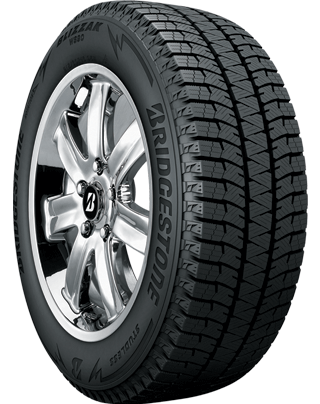
- No warranty
- Winter
- Winter
 Ecopia EP422 Plus
Ecopia EP422 Plus
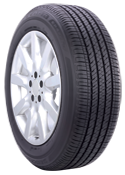
- Platinum Pact Limited Warranty
- All-Season
- Performance
 Potenza Sport AS
Potenza Sport AS
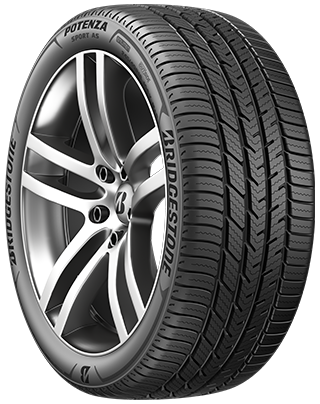
- Platinum Pact Limited Warranty
- All-Season
- Performance
 Turanza QUIETTRACK
Turanza QUIETTRACK
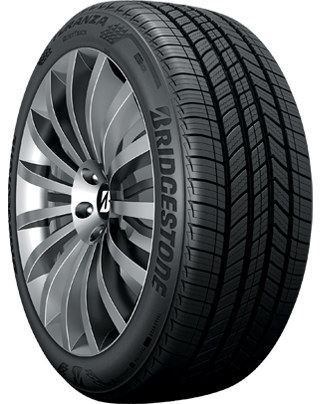
- No warranty
- All-Season
- Performance
 Turanza T005
Turanza T005
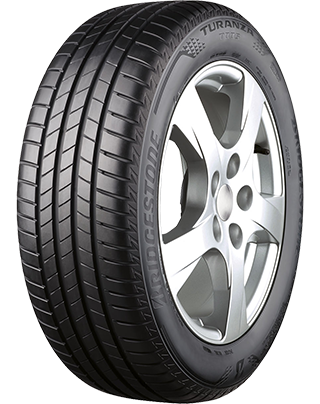
- No warranty
- Summer
- Performance
 WEATHERPEAK
WEATHERPEAK
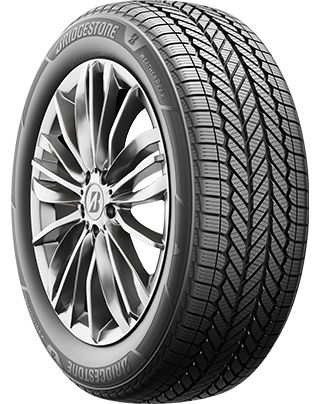
- Platinum Pact Limited Warranty
- All-Season
- Passenger Tires
 Firehawk AS V2
Firehawk AS V2
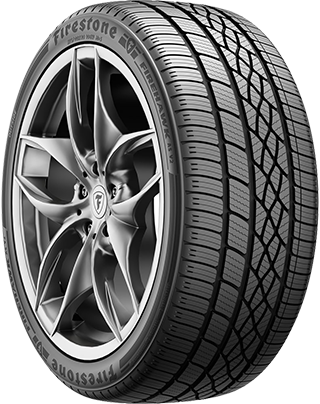
- No warranty
- All-Season
- Performance
 FT140
FT140
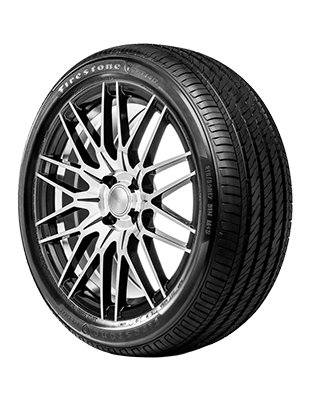
- No warranty
- All-Season
- Passenger Tires
 WEATHERGRIP
WEATHERGRIP
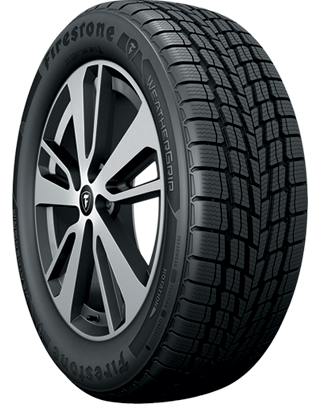
- No warranty
- All-Season
- Passenger Tires
 Winterforce 2
Winterforce 2
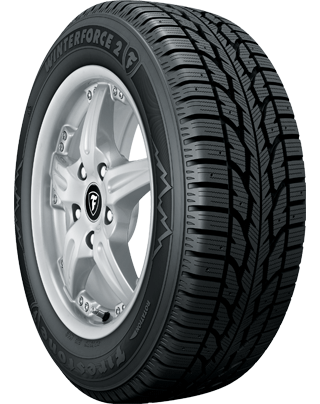
- No warranty
- Winter
- Winter

- No warranty
- All-Season
- Performance

- No warranty
- All-Season
- Passenger Tires

- No warranty
- All-Season
- Passenger Tires
 PROXES Sport A/S
PROXES Sport A/S
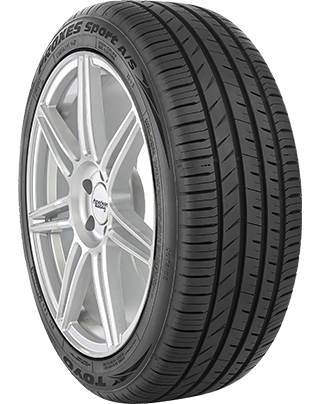
- No warranty
- All-Season
- Performance
 Extensa A/S II
Extensa A/S II

- No warranty
- All-Season
- Passenger Tires
2016 Toyota Prius V Tire Information
Beyond the correct tire size, there are a couple of other factors to consider when buying Toyota Prius V tires like how and where you drive, and how much you want to spend. When evaluating your driving conditions, think about where you live (countryside vs. city vs. mountains) and the kind of unexpected weather you're likely to experience. Drivers in states that fully experience all four seasons often buy two sets of tires: one for summer and one for winter. Other drivers prefer the convenience of all-season tires. They make one trip to the tire shop and they're pretty much ready for rain, light snow, or sun!
Your personal driving style is the next factor to consider. If you're a diehard off-roader, you have very different tire needs than a highway commuter who doesn't leave the paved path. Talk to a tire technician at Firestone Complete Auto Care for help choosing the best tire for you, or start shopping for Toyota Prius V tires online.
2016 Toyota Prius V Tire Installation & Rotation
Firestone Complete Auto Care installs more tires on more cars than most other companies. We're your tire shop and a complete service center for tire installation, maintenance, repair, rotation, and alignment! We make it easy to buy new 2016 Toyota Prius V tires online and book an installation appointment at the same time.
2016 Toyota Prius V Tire Questions
-
Is Toyota tire inflation important? Even a tiny decrease in tire pressure could impact your safety and fuel economy. Maintaining proper tire pressure can help increase fuel economy, improve braking time, and boost tire lifespan.
-
What do the tire sidewall numbers mean for my Toyota Prius V? The numbers on your tire sidewall give you information about tire speed rating, traction, treadwear, tire size, and load carrying capacity. Chat with a tire technician to learn how to read the numbers on your Toyota tires!
-
Can I check the tread depth on my Toyota tires at home? Stay on top of your tire tread depth to help avoid a dangerous drive. You can check tread depth with a penny. Hold the penny so that Abraham Lincoln is facing you, then place your penny into a tread groove upside down. If you can see the top of Abe’s head, your tread is shallow and it might be time for new Toyota Prius V tires. Grab a penny. Hold the so that Abe Lincon's head is facing you and his hair is pointing toward the ground. Then, place the penny into a tread groove. If you can see the top of Abe’s head, your tread is shallow and it might be time for new Toyota Prius V tires.
Repair Services for Your 2016 Toyota Prius V
How do I learn more about auto repairs? Click on a service below to read about the types of Toyota Prius V repairs we do at Firestone Complete Auto Care.
Get Repairs for Your 2016 Toyota Prius V
Car repairs: for many drivers, that phrase is a dreadful one. But we work to provide you with a different experience at Firestone Complete Auto Care. When it’s time for 2016 Toyota Prius V repair services, head to your nearest Firestone location and rest easy knowing that your Prius V is in capable hands. Before we begin any repair work, we’ll diagnose any issues and answer your questions about potential repair options. We value your trust, so we recommend only the repairs we think are necessary for your safety on the road.
What Will Toyota Prius V Repairs Cost?
The cost to repair your 2016 Toyota Prius V depends on the type of repair, prices of appropriate replacement parts, how much labor the repair will take, and your locale. And check back often — we update our deals regularly!
A few different aspects can influence repair costs for your 2016 Toyota Prius V, like
Questions About 2016 Toyota Prius V Auto Repairs
-
Do I still need scheduled maintenance even when nothing is wrong with my Toyota? Don’t neglect scheduled maintenance. Sure, you could skip out on a few recommended maintenance services, but you may pay the price later. Bring your vehicle to Firestone Complete Auto Care at recommended service intervals to address minor issues before they get out of hand and keep your car running newer, longer.
-
What's wrong if something feels 'off' in my Toyota? No, we’re not talking about finding the best jams on the radio! You know your car best, and you’re the first person who will notice if something doesn’t feel right (like new smells, sights, or sounds coming from your car). If you sense that something is 'off,' stop in for a Courtesy Check to have these symptoms checked out ASAP. Early action could help you prevent Toyota Prius V repairs.
-
Are the repairs you recommend for my Toyota actually needed? Trust is more than just a saying on the wall. It’s a window underneath it. That’s why we won’t recommend services or repairs for your 2016 Toyota Prius V unless we think they’re vital to your safety on the road.
Get Your 2016 Toyota Prius V Brakes Fixed
Your Toyota Prius V may be powered by a strong engine. But if you can't stop it, then it's scrap metal. Don't wait if you're experiencing brake squeaks or a loss of braking power. Safe driving is difficult when your brakes are anything but their best. What's more, waiting for things to figure themselves out can result in more damage to your brakes and your wallet. Get your 2016 Toyota Prius V brakes fixed at Firestone Complete Auto Care. Our brake repair services include pad/shoe replacement, rotor/drum resurfacing, brake fluid exchange/bleeding, and brake caliper and wheel cylinder service.
Toyota Prius V Brakes Questions
-
What is causing my Prius V to shake when I brake? If your Prius V shakes when you brake, you could be dealing with warped rotors, faulty brake calipers, worn brake pads or rotors, or loose or worn suspension parts. Schedule a free brake inspection at Firestone Complete Auto Care for help diagnosing your brake issue.
-
How long can I expect my Prius V brake pads to last? You can usually get around 30,000 to 40,000 miles out of your brake pads, but how and where you drive your Prius V can affect this. Hauling large loads or riding your brakes can shorten their lifespan, while smoothly braking and mostly sticking to highways can help your brake pads last longer.
-
Should my Prius V be leaking brake fluid when the car is off? Your Prius V brake system is a closed hydraulic system, which means that the brake fluid should not leak out of the system under normal circumstances. However, over time, the various components of the brake system can wear out or become damaged, which can cause brake fluid to leak out of the system.
When to Get Toyota Prius V Drivetrain Repairs
Drivetrains for front, rear, and all-wheel-drive and 4WD vehicles are not all the same. You don't want to go to any random shop for drivetrain repair. You want to visit Firestone Complete Auto Care. We can fix many 2016 Toyota Prius V drivetrain components Your Prius V might need driveshaft repair if you notice resistance when turning, heavy vibrations in your floorboards, clunks when shifting, or vibration as your vehicle accelerates.
2016 Toyota Prius V Drivetrain Q&A
-
What are signs my Toyota drivetrain is damaged? Your Toyota Prius V drivetrain might be damaged if you notice strange noises from the rear of your vehicle, see fluid leaking, or have issues turning.
-
Why is the malfunction indicator light (MIL) on in my Prius V? A multitude of problems can activate your Prius V’s malfunction indicator light (better known as the check engine light), including issues with the engine, transmission, sensors, electrical system, or connectors.
-
How worried should I be about a drivetrain malfunction in my Prius V? If you experience a drivetrain malfunction in your Prius V, it is important to have it inspected by a professional mechanic as soon as possible to identify the underlying cause and perform the necessary repairs. Driving with a malfunctioning drivetrain can be dangerous and cause further damage to your car.
2016 Toyota Prius V Wheel Alignment
Alignment services involve precise adjustments to your Toyota Prius V’s suspension system, which serves to attach your wheels to your vehicle. During the service, calculated changes are made to the angles of your tires. This is so that your tires hit the road at an optimal angle for your vehicle’s performance — just as Toyota intended. Before we adjust the alignment of your 2016 Toyota Prius V, we’ll start by checking the current alignment angles. Then, we’ll adjust the angles as needed until they match recommended measurements from Toyota.
Answers to Toyota Prius V Alignment Questions
-
How can I avoid knocking my Toyota Prius V out of alignment? Hitting a pothole or curb can alter your wheel alignment. So can general wear and tear over time.
-
How often should you get a wheel alignment for your Prius V? Typically, your alignment should be checked every 6,000 miles or 6 months, whichever comes first. Double-check your Prius V owner’s manual for Toyota's exact recommended schedule.
-
Do you need to get your Prius V wheels aligned? It’s likely not a requirement to get an alignment when you install new tires on your Prius V, but it's a smart idea to do so anyway. An alignment can help ensure even tire wear, smooth handling, and better fuel efficiency.
2016 Toyota Prius V Engine Services
When your Toyota Prius V engine needs repairs, our technicians will make sure you understand what’s going on before they start working on your engine. We make recommendations, but you make the final decision. If a service can wait, we’ll make sure you know. But if immediate repairs are necessary for your safety, we’ll make sure that's clear, too. We seek to give you all the info you need to make a smart decision about our services. Turn to Firestone Complete Auto Care for your 2016 Prius V engine repairs and you can feel confident knowing that we use Toyota-approved parts and components like the serpentine belt, valve guide seal, fuses, or another part.
2016 Toyota Prius V Engine Q&A
-
Why does my Prius V’s check engine light come on when I start it? It's okay if your check engine light comes on when you first start your vehicle. This is a sign that your vehicle is testing its circuits. The light should go off shortly. Bring your vehicle in if it doesn't.
-
Are Toyota Prius V engine noises bad? Strange engine sounds can be a sign something’s off in your Toyota Prius V. Knocking or tapping could be a symptom of low oil. A high-pitched whistle could signal an intake leak or misaligned belt. Squealing can be traced back to a loose fan belt, and grinding might be a sign of brake problems rather than engine issues.
-
Are you unknowingly damaging your Toyota Prius V engine? Certain driving habits can hurt your engine. These habits include driving on an empty fuel tank, revving your engine while the vehicle is in Park, or slamming the gas pedal while the engine is still cold. Steer clear of these habits to help protect engine performance and efficiency.
Get Your Toyota Prius V Tire Repaired
If the road has been rough on your 2016 Toyota Prius V tires, Firestone Complete Auto Care can help. In some cases, a tire doesn’t have to be replaced – it can be plugged and patched with a simple repair. Depending on the damage, though, a repair might not be the right move. Our technicians can determine which option is best for your situation. We’ll begin by taking a look at where the damage is, the type and extent of the tire damage, and how all of your tires are wearing.
If your 2016 Toyota Prius V tire puncture can be repaired, we’ll get to work on the steps to fix it: (1) Remove the tire from the wheel for inspection and repair, (2) fill in the area that’s been punctured to prevent damage from moisture, and (3) re-seal the inside lining of your tire so that air won’t escape.
Frequently Asked Toyota Prius V Tire Repair Questions
-
What happens if I drive my Toyota on a flat tire? A flat tire that’s not addressed can take a terrible toll on the rest of your car. Until you have it repaired or replaced, drive your Prius V as little as possible to reduce your risk of damage to the wheels and alignment – or further damage to that already struggling tire!
-
Is temporary sealant bad for my Toyota's tires? Fast fixes are a mixed blessing. They’ll help you get your Toyota Prius V to Firestone Complete Auto Care, but don’t count on them to keep you on the road for very long. Using a temporary sealant may also void a Bridgestone or Firestone tire warranty.
-
Why do my Prius V tires keep losing air? Your Prius V tires might keep losing air due to a leaking valve stem, puncture or hole in the tire tread or sidewall, or damaged wheel.
2016 Toyota Prius V Maintenance
Take care of your Toyota Prius V and it'll take care of you. With the right maintenance at the right time, your Prius V has a good chance of hitting 200,000 miles or more.
2016 Toyota Prius V Maintenance Schedule
What is the manufacturer recommended maintenance schedule for a 2016 Toyota Prius V? Find maintenance info for your vehicle.
Guide to 2016 Toyota Prius V Scheduled Maintenance
There's no need to guess when it's time to get Prius V maintenance, and no need to wait until something goes wrong. It’s as easy as following the recommended maintenance schedule that’s been written specifically for your 2016 Toyota Prius V! The recommended maintenance schedule is put together by Toyota, your vehicle manufacturer. Driving conditions, climate variations, and other variables can affect which scheduled maintenance services you’ll need; however, there’s a good chance that your vehicle’s recommended maintenance services will include oil changes, tire rotations, brake pad replacement, filter changes, and fluid checks and exchanges. Scheduling routine service appointments is one of the best ways to help extend your Prius V's life, decrease your risk of dangerous malfunctions on the road, and prevent common 2016 Toyota Prius V problems.
Overview of Essential Toyota Prius V Maintenance Needs
Come to Firestone Complete Auto Care for manufacturer-recommended routine maintenance on your 2016 Toyota Prius V and a skilled technician will start the appointment with a Courtesy Check. The Courtesy Check helps us see what we’re working with under the hood, and allows us to alert you to any potential problems before they worsen. Each Courtesy Check includes a free battery test and an inspection of your Prius V's windshield wiper blades, head and tail lights, filters, fluid levels, tires, and alignment.
Firestone Complete Auto Care is the place to go for 2016 Toyota Prius V maintenance. We can help you keep your vehicle (and your life!) running smoothly. Many of our locations have weekend and evening hours for your convenience.
2016 Toyota Prius V Maintenance Q&A
-
When should I have Toyota Prius V alignment checked? Watch out for pothole damage. If your 2016 Prius V is pulling to one side or the other, your tires or suspension system could be calling out for help.
-
When does my Toyota Prius V need high mileage oil? If your Toyota Prius V has ticked past 75,000 miles, consider switching to high mileage oil at your next oil change to give your engine what it needs to go another 75,000 (or more!). High mileage oil: make it a high priority!
-
Can I ignore dashboard lights on my Toyota? It's better to get them addressed as soon as possible. An illuminated dashboard light means something in your vehicle isn't functioning like it should. Letting problems linger can mean bad news for your Toyota Prius V, so be sure to take your car in for service as soon as you notice an illuminated dashboard light.
2016 Toyota Prius V Battery Replacement & Size
Researching battery replacements for your Toyota Prius V?
| Battery | Engine | Warranty | Cold Cranking Amps | |
|---|---|---|---|---|
| L4/1.8L | Replacement months | Performance months | ||
| L4/1.8L | Replacement months | Performance months | ||
| L4/1.8L | Replacement months | Performance months | ||
| L4/1.8L | Replacement months | Performance months | ||
| L4/1.8L | Replacement months | Performance months | ||
| L4/1.8L | Replacement months | Performance months | ||
| L4/1.8L | Replacement months | Performance months | ||
| L4/1.8L | Replacement months | Performance months | ||
| L4/1.8L | Replacement months | Performance months | ||
| L4/1.8L | Replacement months | Performance months |
2016 Toyota Prius V Car Batteries
On average, auto batteries last anywhere from three to five years. Check your battery regularly and replace it as needed so it doesn’t leave you and your Toyota Prius V stranded. Pay attention to clues that your battery is on its way out. A sluggish engine start, a blinking battery or check engine light, bloated battery case, corroded battery posts, or weak lights may all indicate that your battery is waving goodbye.
Plus, at Firestone Complete Auto Care, we’ll test your battery for free. Drop in for a free battery check and, if needed, get your Toyota Prius V a replacement battery. Automotive batteries are just one of our many areas of expertise. Our technicians are familiar with Toyota-specific recommendations for Prius V car batteries’ reserve capacities and cold cranking amps. Get help choosing the battery size that matches your vehicle, and schedule an appointment today for a quick car battery replacement.
Top Toyota Prius VCar Battery Questions
-
Why doesn’t my Toyota Prius V battery stay charged? A battery that won't hold a charge is almost as good as dead. The battery might be old. Or, you may have a habit of leaving your car doors open and the lights on overnight. Stop by for a free battery test at your local Firestone Complete Auto Care to learn more about the state of your battery.
-
What is the average lifespan of a car battery? A car battery normally lasts three to five years, but this number can vary based on battery type, your driving habits, and battery maintenance.
-
Why is there white, crusty buildup on my Prius V’s battery post? The white, crusty stuff that can accumulate around Prius V car battery terminals is called corrosion. It is caused by a chemical reaction between the battery acid and the air, which creates a white, powdery substance that can build up on the terminals over time. Corrosion can interfere with the flow of electricity between the battery post and the car's electrical system, sometimes leading to poor electrical performance, difficulty starting, and even premature battery failure.
2016 Toyota Prius V Oil Changes
Toyota recommends changing your 2016 Prius V’s oil at regular intervals. Outside of Toyota-recommended oil change intervals, your Prius V may need an oil change if your check engine light is on, you hear engine knocking, sense an oil smell in the cabin, or notice excess vehicle exhaust. You may also need an oil change more frequently than Toyota recommends if you haul heavy loads, drive in dusty terrain, adventure off-road, or drive at low speeds for long distances.
Whether you need high mileage oil, synthetic oil, or conventional oil, you'll find the right 2016 Toyota Prius V motor oil at Firestone Complete Auto Care. Talk with a teammate and consult your owner's manual before picking a motor oil. At Firestone Complete Auto Care, you can choose from the following oils: Quaker State® Advanced Durability™ conventional oil, Pennzoil® High Mileage Vehicle® motor oil, Pennzoil Platinum® Full Synthetic motor oil with PurePlus™ Technology, and Shell Rotella® heavy-duty engine oil. During an oil change, an auto technician will change your Prius V’s oil, replace and recycle the old oil and filter, inspect all of your other filters, top-off important fluids, and perform a free inspection on the rest of your vehicle. Get professional engine care by making an oil change appointment for your Prius V today.
2016 Toyota Prius V Oil Change Q&A
-
Why is the oil light on in my Toyota Prius V? Your Toyota Prius V oil change reminder light might illuminate if it’s been too long since your last oil change. On the other hand, the oil pressure light might illuminate due to a clogged oil filter, a faulty oil pressure sensor, low engine oil levels, or a malfunctioning oil pump.
-
Can I change my Toyota oil on my own? Changing engine oil at home isn’t as simple as it’s made out to be. You’ll have to figure out how to properly dispose of the oil and buy special tools. Having your oil changed professionally can not only reduce the risk of something going wrong during the service, but it’ll also help your car perform smoothly down the road.
-
Why is my Toyota Prius V spewing blue or gray exhaust smoke? There could be an oil leak and your engine is burning oil. Time to have a qualified technician check things out. The leak could be caused by several issues like leaking valve seals, damaged piston rings, or worn cylinder walls.
2016 Toyota Prius V Engine Tune-Ups & Maintenance
Routine engine tune-ups can bring power back to your Prius V. Your nearest Firestone Complete Auto Care location has several options to choose from when it comes to Toyota Prius V engine tune-up services. The first is the standard Firestone Tune-Up. It includes a complete visual inspection of engine components, installation of new spark plugs, and a lifetime warranty on parts*. Another service option pays special attention to the filters in your Prius V. Specifically, we replace the fuel filter and air filter. Yet another service is a fuel system cleaning process, which involves removing varnish, dirt, and carbon deposits that have built up inside the fuel injectors, throttle body, and throttle plate in your Prius V. The result? Restored fuel system performance. Here’s something to remember when choosing services: the mileage and service history of your Prius V can determine what kind of service it needs. Ask one of our technicians what your vehicle needs, based on your driving habits and your car’s current condition.
*Ask a Firestone Complete Auto Care teammate about full terms and conditions for warranties.
Questions About 2016 Toyota Prius V Engine Tune-Ups
-
Will it hurt my Toyota Prius V to drive with old spark plugs? Replace spark plugs on time or about every 30,000 miles or so. Without the spark of electricity created by spark plugs, your engine doesn’t have the combustion it needs to start — which could leave you stranded on the road. Always replace your spark plugs on time based on Toyota’s recommendations.
-
What do I do if I see a pool of liquid under my Toyota Prius V? Don't ignore puddles of fluid under your Toyota Prius V. It could signal a coolant leak, brake fluid leak, or an oil leak. Let any one of these leaks linger and it could cause engine damage.
-
How often should I clean my Toyota Prius V fuel injectors? The frequency at which car fuel injectors should be cleaned can vary depending on several factors, including the type of fuel used and the driving conditions. Some manufacturers generally recommend a fuel system cleaning as part of your general car maintenance, or as needed based on symptoms of poor fuel system performance.
Suspension Service & Repair for 2016 Toyota Prius V
When you first bought your 2016 Toyota Prius V, you and your passengers probably enjoyed a ride that was smooth and balanced. But these days, things are starting to feel a bit rough. Perhaps your Prius V feels bouncy, pulls to one side, or makes an unusual noise when going over a speed bump. The first sign of trouble is the best time to bring your 2016 Toyota Prius V in for suspension and steering service. We’ll get to the root of the issue and, if steering and suspension service is needed, we’ll explain what your car needs and how much it’ll cost to get it done. We won't begin any work without your permission.
2016 Toyota Prius V Steering & Suspension Questions
-
Why is my Toyota Prius V bouncing excessively? If it feels like you’re on a trampoline every time your Prius V goes over a bump or dip, you may have a problem with your struts or shocks. Faulty shocks and struts can’t properly absorb road bumps, leading to a bouncy ride.
-
Why does my Prius V tilt forward when I hit the brakes? When you brake, the forward momentum combined with your vehicle's weight sends a lot of force to the vehicle's front end. A bad suspension can cause all that weight and force to push the front end downward.
-
Does tire pressure and tread depth impact my Toyota's suspension? Maintaining your tires can help reduce strain on the suspension, nd also let you know when it's time to replace your tires. A faltering steering and suspension system could lead to uneven tire wear.
A/C Service for Your 2016 Toyota Prius V
Technicians at Firestone Complete Auto Care are ready to help you address your 2016 Toyota Prius V A/C problems. During this initial A/C performance check, we’ll look at the state of your 2016 Toyota Prius V’s A/C system to determine whether repair work is needed. We’ll test overall system performance, check for any leaks, and measure the system pressure.
When we perform an A/C repair on your 2016 Toyota Prius V, we’ll also do an A/C evacuation and recharge. To do this, one of our technicians will remove the refrigerant in your A/C system (if there is even any left to remove). Then, they’ll use Toyota’s specifications to evacuate the system. The A/C system is recharged with new refrigerant.
Questions About 2016 Toyota Prius V A/C Systems
-
Why do I get hot air from my Prius V A/C? An A/C blowing hot air has several possible root causes. There could be an issue with your compressor clutch, a blown fuse, a leak, or a clog in the expansion valve.
-
What can cause an A/C system leak? Over the years, the rubber seals and gaskets in your Prius V’s A/C system naturally degrade. Moisture can get into the system and cause a malfunction, or parts can simply wear out so that your system no longer seals properly.
-
Why won’t my Prius V’s A/C cool the vehicle when the car is stopped? A problem with one or more of your air conditioning or electrical system components could cause the A/C to only work when your Prius V is moving. You may be low on refrigerant, or the cooling fan could be faulty.
2016 Toyota Prius V Transmission Service
Your transmission carries power from the engine to the wheels so that you can drive at the speed you desire. Because your transmission is responsible for converting the right amount of power into the right amount of speed, even the smallest transmission problems should be addressed right away. Toyota Prius V transmission problems can present themselves as shifting delays, grinding when accelerating, the car shaking at any speed, or whistling noises or a burning smell coming from beneath the hood. If you don’t pay attention to Toyota Prius V transmission trouble your could suffer a loss in fuel efficiency or find that your Prius V isn’t working at all. Our technicians know how to service your 2016 Prius V up to Toyota-recommended standards. Schedule an appointment at your local Firestone Complete Auto Care at the first sign of transmission problems to help keep your engine running at peak performance.
2016 Toyota Prius V Transmission Questions & Answers
-
Does my Prius V's transmission fluid need to be inspected? Maintaining your Toyota Prius V transmission fluid is one of the best ways to maintain your transmission's health. A general rule of thumb is to have your transmission fluid checked and changed about every 30,000 to 60,000 miles, but that timeline can change if you're hard on your Toyota. Leaks or low transmission fluid are easy to spot and affordable to repair.
-
Can Toyota Prius V transmission fluid leak? Yes, your Toyota Prius V can develop a transmission fluid leak. As your Prius V ages, parts of the transmission system might wear out or break down, leading to a leak and possible transmission issues. Common causes of transmission fluid leaks include worn seals, a damaged transmission housing, a loose or cracked transmission pan, an overfilled transmission, or faulty transmission lines.
-
Should I avoid driving my Toyota Prius V if there is a transmission fluid leak? Driving your Prius V with a transmission fluid leak is highly discouraged. Transmission fluid is vital to the smooth operation of your transmission system, and a leak can put the entire system at risk. A transmission fluid leak may lead to decreased performance, overheating, and possibly even transmission failure.
Vehicle Inspection for 2016 Toyota Prius V
Every service performed at Firestone Complete Auto Care includes a multi-point Courtesy Check. To start, one of our technicians will check the battery in your Toyota Prius V to find out how much charge is remaining on it. The check will continue with a visual inspection of your Toyota Prius V's lights, windshield wipers, filters, hoses, alignment, tires, fluid levels, and belts.
We perform a Courtesy Check any time you bring your car to a local Firestone Complete Auto Care for service, but we can also dig deeper and perform a Complete Vehicle Inspection on your 2016 Toyota Prius V if you prefer. In addition to a visual check of everything that's included in a Courtesy Check, a Complete Vehicle Inspection also includes a hands-on examination of your exhaust system, steering and suspension, and brakes. With this inspection, we want to help you stay on top of any issues that may require preventative maintenance.
In some cities or states, your local Firestone Complete Auto Care may be able to perform state-mandated inspections or safety tests on your vehicle. Inspections are performed on a state-by-state basis and requirements vary.
Common 2016 Toyota Prius V Vehicle Inspection Questions
-
How do I know if I should have an inspection on my Toyota Prius V? You drive your car, day in and day out, so you know it best. If you notice unusual engine noises or you can’t shake the feeling that something is 'off,' start with a Courtesy Check to stay ahead of potential issues.
-
My 2016 Toyota Prius V failed the state inspection test. Can you fix it? Don’t panic! Come in for a complete inspection today and we’ll find (and repair) the root cause before you have your vehicle retested.
-
When’s the best time to have a complete vehicle inspection performed on my Toyota Prius V? The best time to have a complete vehicle inspection done on your Toyota Prius V is when you notice something is off but you can’t locate the issue yourself. Schedule an inspection if you experience any unusual symptoms, such as unfamiliar dashboard indicators, strange engine noises, or steering changes. An inspection can be especially beneficial before a road trip for the simple peace of mind. You can feel confident in your adventure!
2016 Toyota Prius V Radiator Service
Regular, proactive service on the radiator in your 2016 Toyota Prius V is essential for long-term engine health. In fact, Toyota recommends replacing coolant/antifreeze at specific intervals, but you can also take note of any signs your radiator is going bad. You could be on the verge of a radiator-induced engine breakdown if you notice a low coolant light or higher-than-normal engine temperatures on your dashboard, or if you spot coolant leaks coming from your car.
If you bring your vehicle to Firestone Complete Auto Care, we start with a comprehensive inspection of your Toyota Prius V’s cooling system. We’ll do a machine-powered coolant exchange on the system, and then we’ll top off or replace the fluids that were removed (like chemicals, lubricants, and sealants). Lastly, we’ll perform a pressure check to look for leaks. When it comes to radiator service and repair, we’ll take excellent care of your 2016 Toyota Prius V at Firestone Complete Auto Care.
2016 Toyota Prius V Radiator Q&A
-
What does an illuminated coolant temperature light mean for my Toyota? Pay attention to the temperature gauge and lights on your dashboard. If a low coolant warning light comes on or your dashboard temperature gauge keeps rising, it’s likely that your engine is about to overheat (and could leave you stranded on the road). Wait for the engine to cool down, then have your coolant system checked immediately at your nearest Firestone Complete Auto Care.
-
My Prius V overheated! What can cause that? Low coolant, a damaged cooling fan, a faulty water pump, a malfunctioning thermostat, or a clogged radiator could all cause your Toyota Prius V engine to overheat.
-
What can cause a Prius V radiator to make boiling or rumbling sounds? There could be air pockets in your Prius V’s cooling system. You might also have a clogged radiator or faulty radiator cap (this last one is an easy fix!).